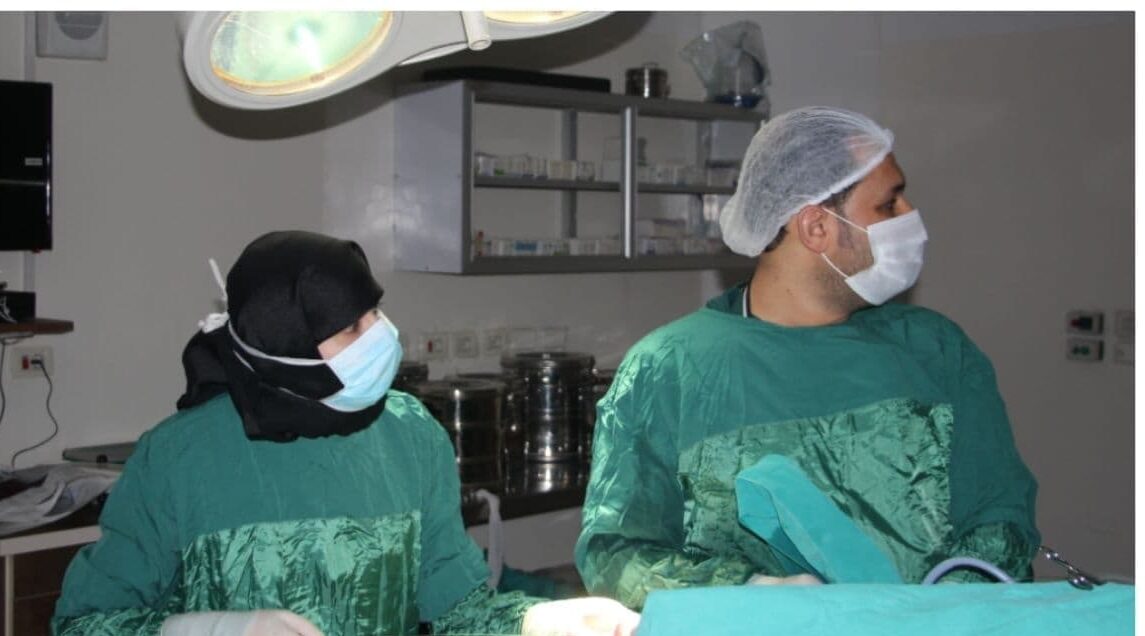
Since the beginning of the Syrian revolution women have played significant and special roles. These roles were many times overlooked as the Syrian war was, and still is, a male dominated field. Now that the liberated North of Syria is somewhat peaceful, the women’s roles is becoming more apparent after a decade of war and instability.
“Ever since the beginning of the revolution in Syria there has been a special role for women. This particular role went through different stages according to the nature of the conflict and the ability of them to participate. Today, the freed areas have entered the stage of rebuilding institutions and establishing a government that is an alternative to the Assad regime”. – Osama, researcher at Khattabi Center.
Jamal Shahoud, Minister of Culture in the Salvation Government considers “the role women play as essential and of no less importance than that of men in rebuilding the liberated areas. It is apparent that women are of great importance to the Salvation Government, which has a widespread influence in northwestern Syria. This has become clear by the presentation of the total number of graduate students”. According to Mr. Shahoud, women represent the majority of both lecturers and students in Idlib University. The total number of female students at the moment is 8500 out of 14.000 (60.7%). In addition to that, women are active in the different fields such as healthcare, the Ministry of Internal affairs and Social Services, and the Ministry of Development.
Although the issue of women in areas controlled by religious authorities is viewed by some as a thorny issue. However, in Idlib, it does not appear to be so at all. The authorities here do not view the religious authorities as an obstacle to women’s activism and education. On the contrary, Mr. Jamal explained that the great interest in women on the part of the Salvation Government stems from “the teachings of our religion and the belief in the importance of the role of women in society, as they are half of society, if not more, and their empowerment is the focus of all government officials.”
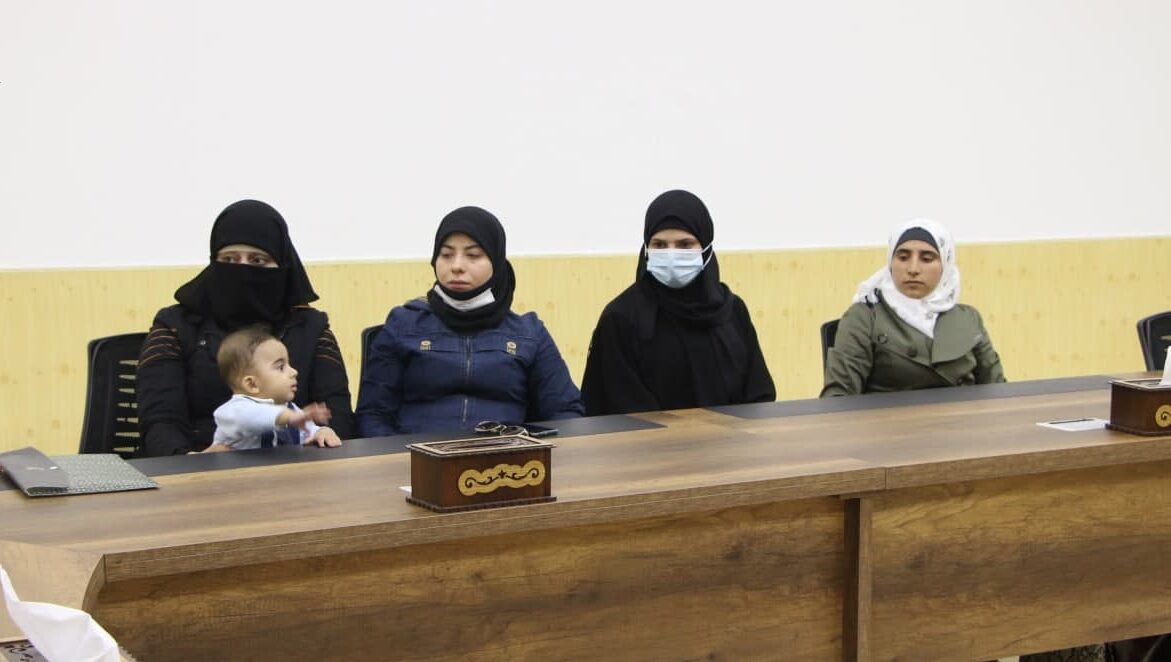
Jihan al-Haj Bakri, revolution activist and a member in the Ministry of Education, said: “An important point should be emphasized, the Islamic religion does not call for equality according to its Western concept, but rather to equality that takes into account the rights and duties of each party. The duties here are related to the physical abilities that distinguish women from men, as women are distinguished over men in many areas, especially the ability to raise generations, while men are distinguished over women by their ability to do hard labor.”
Shahoud also mentions that “Approximately 30% of government employees are women and we are striving to reach 40% in the near future.”
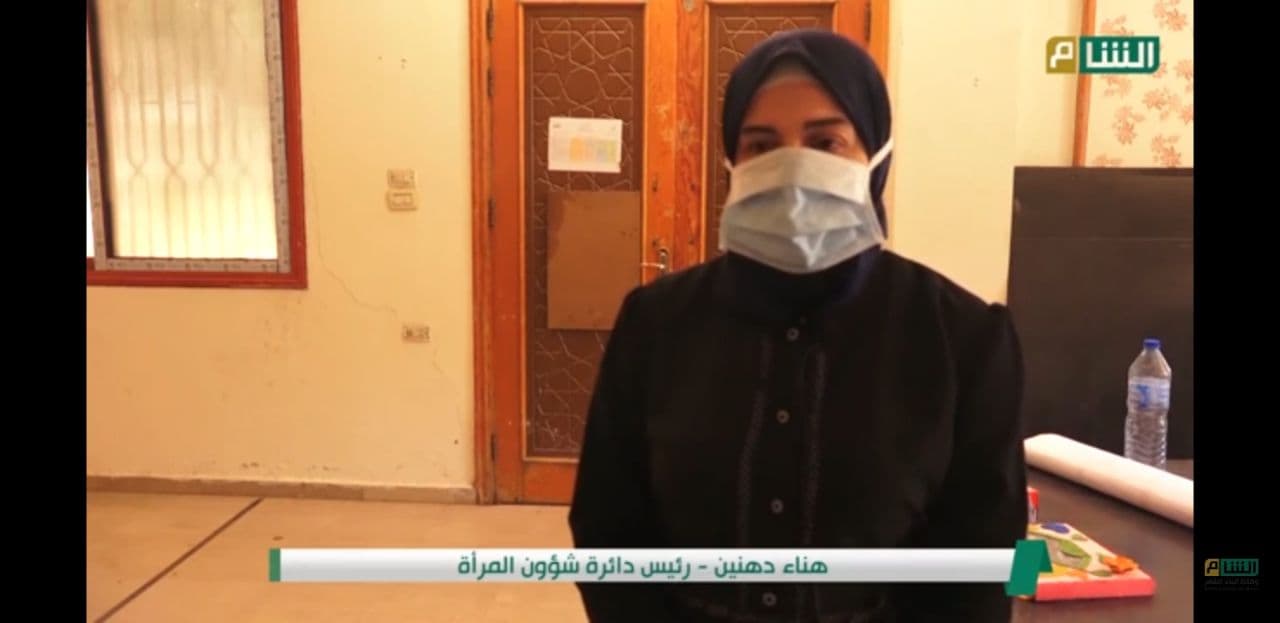
When asked why women are not holding leadership positions in the Salvation Government, Hanaa Dahneen, head of the Department of Women’s Affairs indicated that the war, the nature of the long lasting conflict and the nature of women to nurse and educate were some of its causes. However, Dahneen emphasized that women are managing more than twenty schools, in addition to administrative work in hospitals. She also underlined that the government will see women in important roles within its ranks in the near future.
One of the aspects that also piqued our interest is that the importance of women in Idlib was not limited to their education and participation in government institutions. Rather, the Women’s Affairs Department of the Directorate of Culture in the Salvation Government became interested in issues of women’s empowerment, especially widows and divorcees. Despite the scarcity of material resources, the Directorate sought to train unemployed women and secure sources of income and employment for them, by setting up vocational training centers for sewing, grooming, nursing and other professions. So far, the number of courses held since the establishment of the department in late 2019 has reached seventeen, from which more than 500 women graduated in various vocations, and the courses are still ongoing at a rate of one per month.
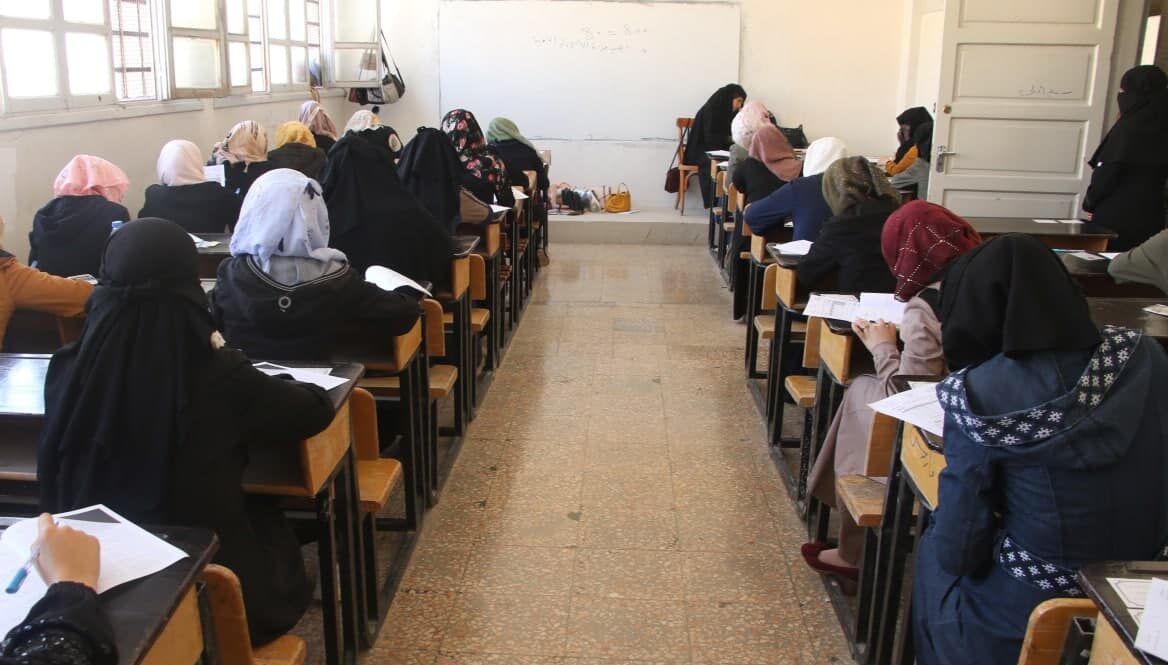
Women in Idlib also had an impact in the field of media, as many activities and events were organized by women activists. The most recent of which was on the anniversary of the revolution on March 18th, where a large gathering of women called for the downfall of the Assad regime.
Miss Hanaa mentions that “As for preserving women’s rights from domestic violence, harassment and exploitation, these rights are preserved and safeguarded in our religion of Islam. Women have the full right to file complaints in government courts whenever any violence is committed against them. The Salvation Government’s area of control is considered one of the most progressive areas which protects women from these crimes. The region, she explained, has the least number of cases of rape and harassment, and the government fully assists women in the event of any complaints related to these aspects, women have the full right to claim custody in the courts and the law gives them these rights. It also prohibits any case of spousal violence or taking her children away from her in case she wants custody of her children.”
“A number of media outlets try to portray the authorities in Idlib as extreme and misogynistic,” many also claim that extremists in Idlib threaten women’s rights and prevent their freedoms, but the reality and statistics tell a different story.” states Osama.
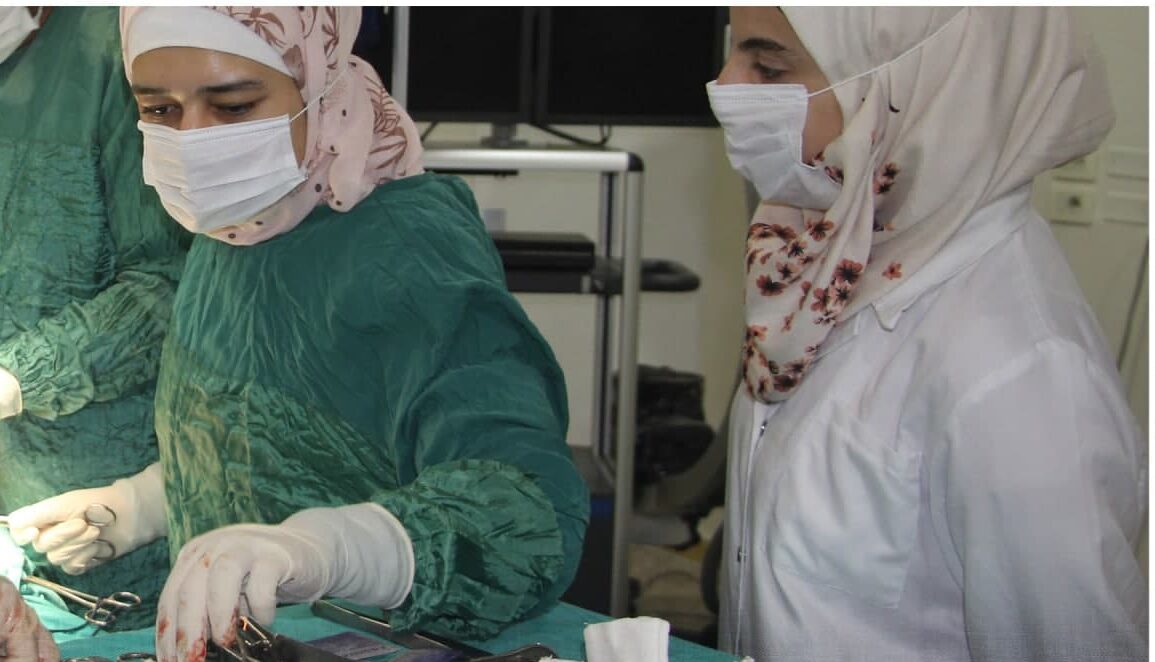
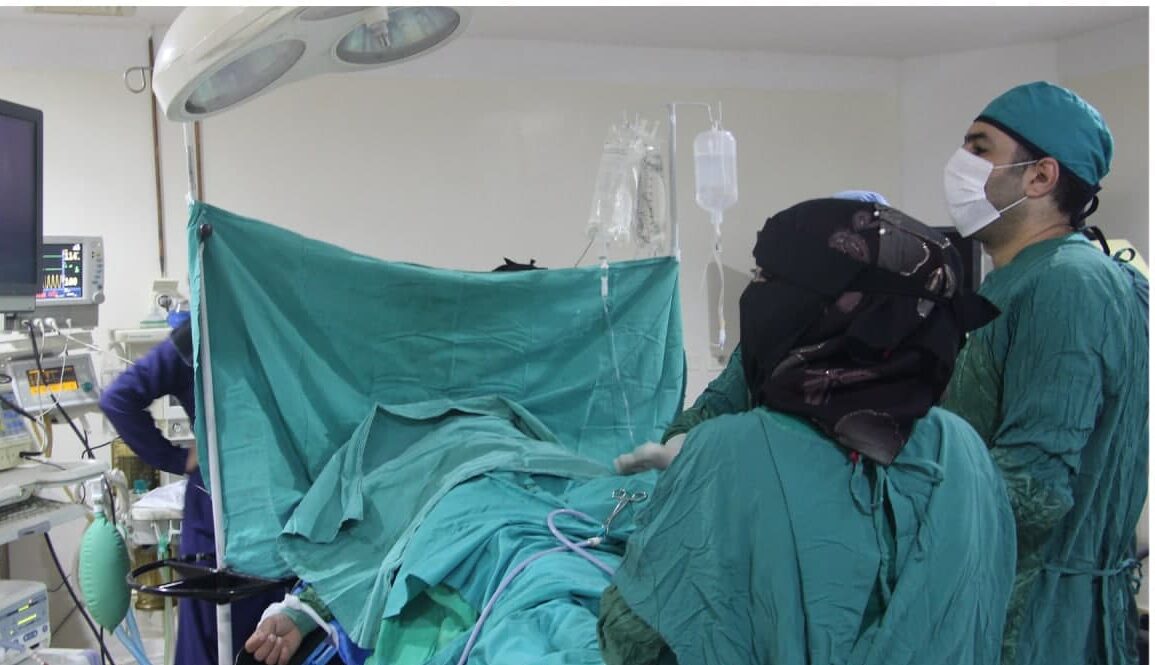
Osama, researcher at Khattabi center reported “Women in Idlib are now actively participating in many intellectual and practical fields, they represent nearly 50% of the employees in the public sectors, especially health and education, in addition to their participation in the humanitarian and media fields. On top of that, the authorities in northern Syria are investing to strengthen and develop the role of women despite the limited resources.”
“The reality of women’s rights in the West and the East is still a controversial reality that does not lead to any path;” argues Jihan al-Haj Bakri. “This is because her rights are considered without her duties. When looking at her duties, her physical, psychological and social characteristics are canceled, but if her rights and duties are discussed with a comprehensive and integrative view, just as Islam presents them, a way will be reached that preserves the dignity of women, preserves her rights, and regulates her duties towards herself and towards society.”









